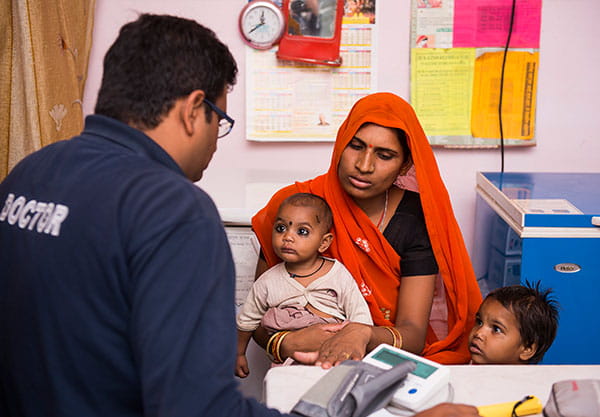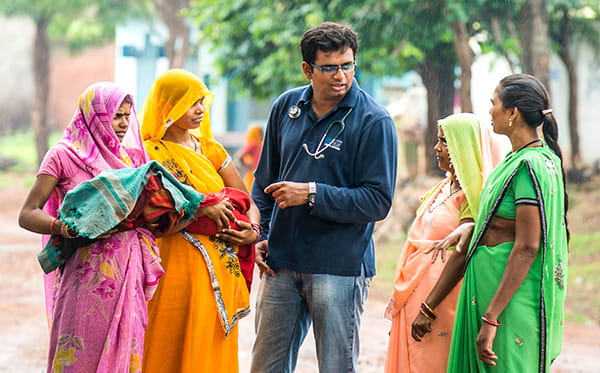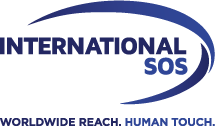A Day in the Life... of Dr Sanket Patel
Published: March 2015
HOTLINE (HL) SPEAKS TO DR SANKET PATEL ABOUT DELIVERING MEDICAL SERVICES IN A REMOTE FOREST IN INDIA.
HL: Dr Patel, can you provide an overview of your role and the services you provide for International SOS?
I am based in Buxwaha – a remote forest area in Chattarpur District, Madhya Pradesh state, in central India since February 2012. I have been working as a medical consultant for Rio Tinto, one of our multinational mining clients.

I work as part of Rio Tinto’s Bunder project, which is one of the most advanced diamond projects in the world, currently in the pre- feasibility stage. One of Rio Tinto’s corporate responsibility goals is to provide high-quality health services in the areas where they operate globally, and this project is no exception.
At our base here in Buxwaha we run an Out Patient Department where I see and treat a whole range of patients and interesting people, from client employees to contractors and members of the local community. We also deliver regular health promotion campaigns including something we call ‘tool box talk’, which is a daily meeting about safety measures and behaviours. And if there is an emergency we can help stabilise patients in serious conditions, before transferring them to hospital in either Sagour or Chattarpur Districts via Advanced Cardiac Life support (ACLs) ambulance.
A forest is a challenging environment and it is important people know how to stay healthy and safe, so as an additional service I provide first aid courses, snakebite awareness and heat stress prevention training, among other initiatives. And twice a week I carry out clinical work in Bajana Village, which is 30 kilometres away, providing health checks and distributing free medicines to members of the local community.
HL: What skills do you need for this role?
I have an MBBs degree and post-graduate qualifications in family health from CMC Vellore, plus a fellowship in occupational health from the Central Government of India. But i need to stay abreast of medical developments in order to fulfil my role and provide the best-possible services to client employees and the local community. So twice a year International SOS provides my colleagues and I with training in Jakarta, Indonesia, in basic life support, advanced cardiac life support and international trauma life support, all of which is approved by the American Heart Association.
Such skills are essential, but to be a really successful medical practitioner you also have to be good at communicating with people. You have to earn trust from them. You have to listen first and then act accordingly and wisely.
HL: What kinds of health conditions and issues do people face where you work? And what challenges do you face in treating them?
Malnutrition is common to all age groups in the local community. Specifically among children, respiratory diseases and diarrheal diseases are more common, followed by vitamin A deficiency. Anaemia is more common among females, cataract and osteoarthritis among the elderly, while other health issues like skin infections, seasonal flu and UTI/RTI/STI are also prevalent. Poverty and illiteracy are real problems too.
Temperatures here can hit real extremes during winter and summer, which makes the job difficult. I am the only medical professional out here but overall the infrastructure is good and I have strong backup from the International SOS medical services team in New Delhi. I always have access to senior medical colleagues to assist with complicated situations. The teams provide wonderful support, and also the Assistance Centre staff in our 27 global Assistance Centres who work tirelessly 24/7. Together we have enough in terms of logistics, equipment and other supplies to meet the needs of the local population.
HL: Is there one case or incident from your time in Madhya Pradesh that stands out as particularly memorable?
I remember an LTI (Lost Time Injury) incident in 2012. A worker’s finger had become twisted as he shifted a cement block; he came to the clinic in great pain and I felt the gap between his finger joints. Immediately I immobilised the man and administered primary treatment, and we were able to reach the orthopaedic hospital before callus formation began. I accompanied him to the operating theatre where he had a K-wire fixation. His finger was saved; I had done my job, it was really satisfying.
HL: What do you like most about your job?
Treating patients is a passion for me. I always wanted to help people, to use my skills and knowledge to benefit others; and this job enables me to do just that.
My work has also been recognised, which is very gratifying. in 2012 my colleague, Dr Varun Nishanth, and I won the International SOS Certificate of Appreciation for our health contribution to the Bunder Project. But this would never have been possible without the help of the project staff and, of course, the local community.

HL: What does it mean to you to be working in India in your current role?
I was born in the Patan district of Gujurat and brought up in the ‘diamond city’ of Surat, so working here is very meaningful to me. I am really thankful to God and my family that they have given me such great support over the years – support which has enabled me to reach this stage in my career. I also got married in 2012; my wife is a doctor as well, and I am now living with her and my parents in Surat, where I grew up – it is an interesting coming together of my past and my present; of my personal and professional life.
It really is a great opportunity, to be able to give something back in the country where I grew up and trained. International SOS has always valued and supported the training and development of local people in partnership with its clients. The organisation covers such wide-ranging operational environments, and our onshore and offshore extractive industry clients bring us into contact with all kinds of people and places.
Wherever the work takes us, it is good to know that we can make a positive impact on the lives of those we work with and the lives of local people.
International SOS understands that recruiting, retaining and developing the right talent is critical to support the organisation’s culture which is based on its values of Passion, Expertise, Respect and Care. It’s a dynamic and growth-oriented business that offers exciting opportunities globally for people who wish to have a challenging and unique career experience. More information can be found on this website: internationalsos.com/careers










